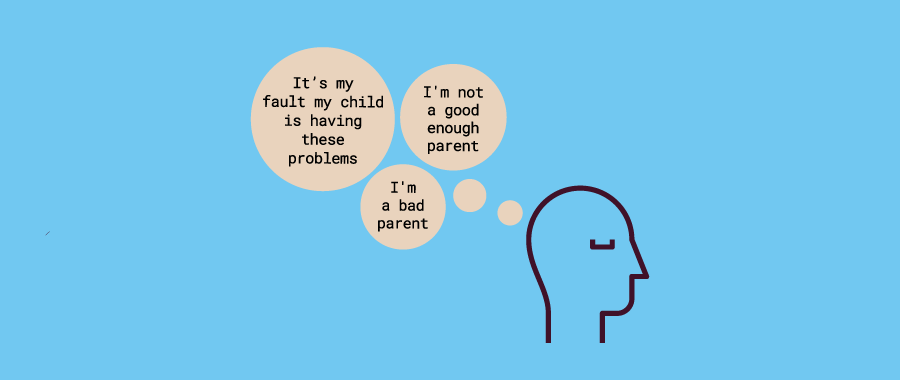
Stigma can be detrimental, so don’t let it stick: Part 1
I recall being in a grocery store and seeing a child shift from a few tears about something relatively minor to an all-out emotional meltdown. I recall the mother’s embarrassment as she looked down at her child and then around the store to see who was watching. I recall the person near me muttering under her breath “calm that child down” and seeing other people moving away. I distinctly recall that mother’s tears as I asked her if she was ok and if I could help. As it turns out, her little girl had significant sensory sensitivity, autism, and anxiety and had just found the whole shopping experience too much to handle. What that mother needed in that moment was compassion, not judgment. But yet, the judgement is an all too regular occurrence for parents and the compassion is all too infrequent.
Social Stigma: a sticky thing
This mother’s experience is an all too familiar example of social stigma. That is, stereotypes about, prejudice for, and discrimination towards others perceived as different in some way. The stigma of mental illness/mental health problems remains common, despite determined social intervention. Stigma is regularly experienced by parents of children with mental health problems. Parents feel blamed by others, judged as bad parents, and shamed by strangers, friends, and family.
Stigma is pretty damaging. In parents of children with mental health problems, in particular, it can lead to social withdrawal, sadness, anxiety, difficulties engaging with therapy and compliance with treatment. In some circumstances, stigma can lead to the worsening of mental health conditions – not only is the child at risk of this, but so is the parent as well. Whilst it can be hard to get away from, there are things we can do to get unstuck from it. But first, a word on why it’s so sticky and toxic to people who experience it.
Self-Stigma: an even sticker thing
We know from research and clinical practice that stigma can stick. And worse than that, parents are at real risk of turning the stigma they receive from others on themselves and come to hold those same negative beliefs. We call this self-stigma. That is, parents come to believe that they are to blame for their child’s difficulties, that they are not good enough parents, and/or are ashamed of themselves as parents. Sometimes parents are excellent at keeping these thoughts and beliefs close to their chest – you wouldn’t know they think this way. Other times, that negative internal monologue is as clear as day – I’m sure we’ve all heard a parent alluding to feeling not good enough as a parent.
Unfortunately, research tells us that these negative beliefs are associated with lower self-esteem and empowerment, and higher affective distress in parents. Ultimately, this can have serious implications not only for parents, but for their child as well. Yes, we all doubt ourselves at times. This seems to be a natural part of the human condition. But when that doubt turns into a strong internal negative critic that is telling us what we can’t do, what aren’t capable of, how bad and ineffective we are, there’s potential for real damage here. So, what do we do? As parents, how do you turn down that negative critic and get unstuck from the stigma? To learn more about getting unstuck from self-stigma read part 2.
Written by Dr Kim Eaton, Clinical Psychologist.
More information
If you’re concerned about parenting self-stigma, or would like to learn more about self-stigma book an appointment with Dr Kim Eaton or another one of our experienced clinical psychologists, contact our friendly client team by calling 6143 4499 or email via our contact page.

Contact
Ph: (08) 6143 4499
Fax: (08) 9200 5696
Monday to Thurs 8:30am - 7:30pm
Friday 8:30am - 4:30pm
Saturday 8:30am - 2:30pm
Locations
6 Outram Street
West Perth, 6005 WA
36 St Quentin Avenue
Claremont, 6010 WA
In the spirit of reconciliation, Lawson Clinical Psychology acknowledges the Traditional Custodians of country throughout Australia and their connections to land, sea and community. We pay our respect to their Elders past and present and extend that respect to all Aboriginal and Torres Strait Islander peoples today.
Lawson Clinical Psychology celebrates the extraordinary diversity of people’s bodies, ability, genders, sexualities and relationships that they represent.
Copyright © 2024 Lawson Clinical Psychology. All Rights Reserved. Privacy Policy.
